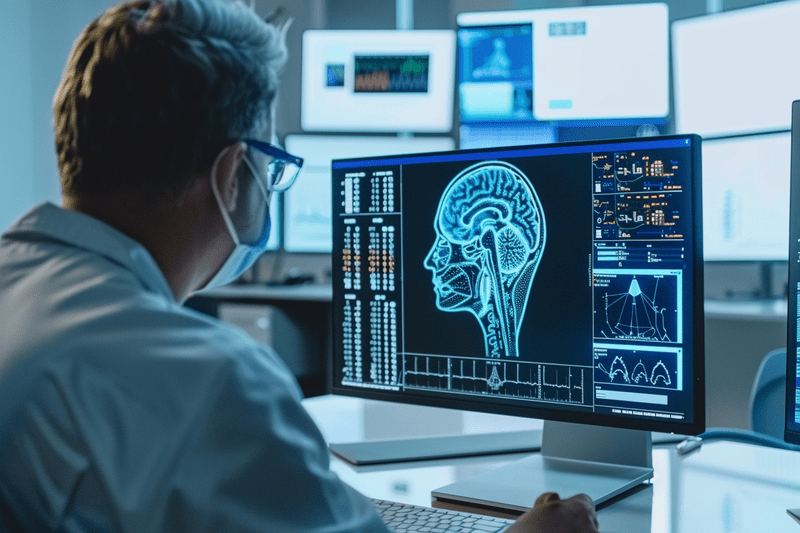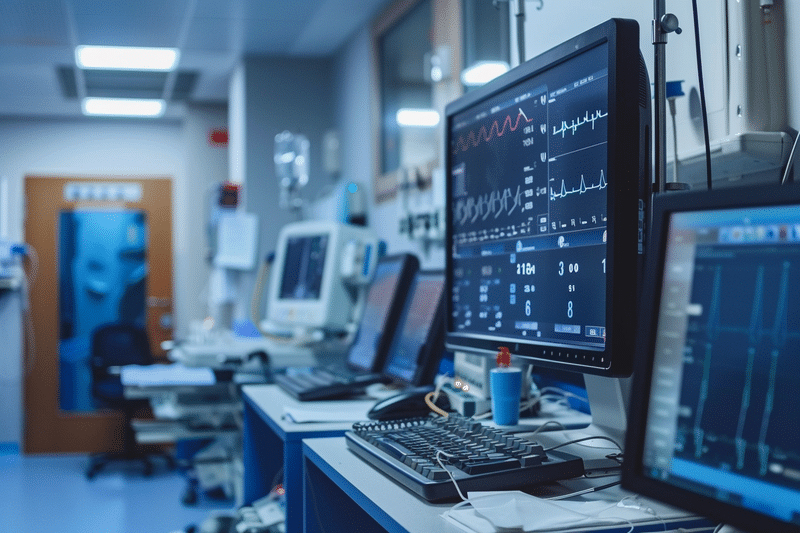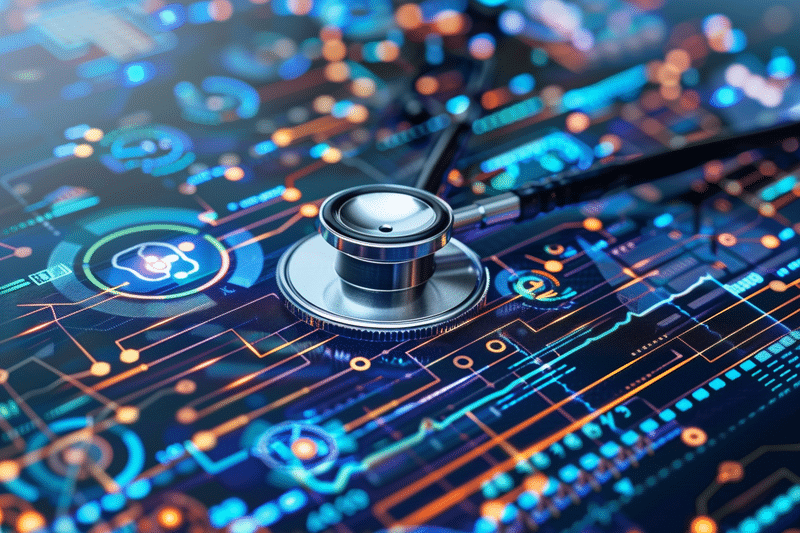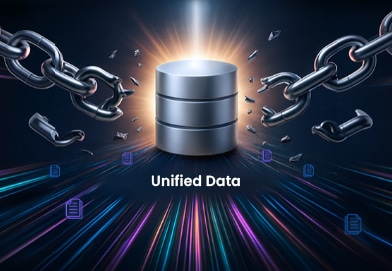Imagine being able to record and replay your memories with perfect clarity. This sci-fi concept is becoming a reality thanks to advancements in computational neuroscience and data science.
Brain-computer interfaces (BCIs), combined with cutting-edge developments in machine learning, artificial intelligence, and computer science, are revolutionizing our understanding of brain function. What does this mean for healthcare? We are on the brink of radical medical breakthroughs, driven by the ability to compute and analyze complex neural data like never before.
The power of data potential poses many questions as we dive deep into the realm of neuroscience and BCIs in healthcare. Technology innovation increases challenges as much as it does opportunity. From the role of brain data to the implications for diagnosis and treatment, computational neuroscience and BCIs are paving the way for groundbreaking clinical applications and cutting-edge technologies.
Personalizing Medicine through Computational Neuroscience and BCIs

Healthcare has traditionally focused on standardized treatments for patients with similar diagnoses. Breakthroughs in neuroscience and data science are upending those traditions by enabling personalized medicine, which tailors medical treatment to each patient’s unique characteristics.
Individual Neural Profiles
Creating detailed neural profiles allows for treatments customized to address specific neural dysfunctions. For instance, individualized neural data can help identify the precise nature of a patient’s neurological condition, leading to more targeted therapies.
Genomic Data Integration
Integrating neural data with genomic information leads to more precise and effective therapies. This combination allows for a comprehensive understanding of a patient’s health, enabling treatments that are customized at a genetic level.
Adaptive Treatment Plans
Continuous monitoring of neural activity through BCIs enables adaptive treatment plans that evolve with the patient’s condition. This approach ensures that treatments remain effective over time, adjusting to changes in the patient’s health.
Evaluating Performance: Key metrics such as data accuracy and user satisfaction are crucial for advancing BCI technology and ensuring it meets user demands.

Innovations in Neural Technologies
The field of computational neuroscience is witnessing a surge of groundbreaking advancements that promise to revolutionize healthcare. Here are some of the most promising developments:
Advanced Neural Interfaces
Brain-machine interfaces are being developed to restore and enhance human capabilities, transform the treatment of neurological disorders, and augment cognitive functions. These advancements are rooted in the understanding of brain function and the nervous system, facilitated by computational approaches.
Neuroimaging Tools and Analytics
Advanced neuroimaging tools and data analytics provide precise measurements of neural activity, opening new avenues for understanding and treating brain conditions. These tools generate vast amounts of brain data, requiring robust data processing pipelines to handle the influx.
Neural Data Acquisition Systems
Systems for recording, stimulating, and analyzing neural activity are essential in developing neuroprosthetics and other assistive technologies. These systems generate vast amounts of brain data, which can be used to create highly effective medical devices.
Clinical Applications of Computational Neuroscience and the Human Brain
Computational neuroscience and BCIs offer a deeper understanding of brain function and its role in various conditions. Here are some key areas of clinical application:
Neurological Disorders
Innovative diagnostic tools and treatments are being developed for disorders like epilepsy and depression. These advancements are improving the accuracy of diagnoses and the effectiveness of treatments.
Mental Health
Enhanced understanding of neural mechanisms underlying mental health conditions leads to more effective treatments and interventions. For example, fMRI neurofeedback is helping patients regulate their mental states by providing real-time feedback.
Rehabilitation
Computational models and BCIs guide rehabilitation strategies for patients recovering from strokes or traumatic brain injuries. These models can predict recovery trajectories and tailor rehabilitation programs to each patient.
Case Study: Epilepsy Treatment
A patient with epilepsy, experiencing frequent, uncontrolled seizures despite multiple antiepileptic medications, explored advanced treatments such as:
Responsive Neurostimulation (RNS): Devices track key metrics and deliver electrical stimulation to prevent seizures. These devices recognize seizure patterns, providing personalized treatment based on the patient’s unique neural data.
Non-Invasive Monitoring: Devices that monitor physiological signals can predict and alert patients of impending seizures, improving quality of life by providing early warnings and reducing seizure frequency and severity.
Consider the Facts: RNS data-based models predicted seizures 1 hour before the onset with a 99.6% accuracy rate and a false alarm rate of 0.004/h.

Case Study: Depression Treatment
A patient battling major depressive disorder, unresponsive to various medications, received fMRI neurofeedback treatment. During therapy, real-time feedback based on activity in specific brain areas helped guide the patient in using visual cues and mental imagery to regulate their mental state, resulting in significant improvement.
Advanced Treatments
Transcranial Magnetic Stimulation (TMS): TMS uses magnetic fields to stimulate brain areas associated with mood regulation. Computational models optimize TMS protocols, making treatments more effective and personalized.
Deep Brain Stimulation (DBS): DBS involves implanting electrodes in the brain to modulate neural activity, used for treatment-resistant depression and OCD. Advances in computational neuroscience refine DBS techniques and improve patient outcomes.
The Future of Sleep Tech

Millions struggle with sleep disorders such as insomnia and sleep apnea. Traditional sleep trackers provided limited insights into sleep health. However, integrating computational neuroscience and BCIs has ushered in an era of active sleep tech. Notable advancements include:
Advanced Sleep Monitoring
Basic trackers monitor simple metrics like duration and sleep stages. BCI technology monitors neural activity and uses auditory stimulation to detect sleep anomalies and enhance sleep quality.
Interactive Sleep Therapy
BCIs can actively improve sleep. Research on closed-loop BCI systems using auditory or electrical stimulation during specific sleep stages suggests the potential for reducing insomnia symptoms and improving sleep quality.
Neurofeedback for Sleep Improvement
Neurofeedback trains individuals to regulate their brain activity, helping optimize sleep patterns.
Future Directions in Computational Neuroscience and BCIs
The future of computational neuroscience and BCIs shows tremendous promise, with several emerging trends poised to drive further innovation and transform healthcare. Effective data management will play a crucial role in these advancements. Key areas to watch include:
Non-Invasive BCIs
Non-invasive BCIs, which do not require surgical implantation, are becoming more accessible and less risky. They enable device control through brain signals. Robust data management ensures accurate signal interpretation and real-time responsiveness.
Integration with Virtual and Augmented Reality
Combining BCIs with VR and AR creates immersive environments for therapy and training. These technologies help improve motor skills and cognitive functions. Effective data management handles the large volumes of data generated, facilitating real-time feedback and adaptive therapy.
Advanced Neuroprosthetics
Sophisticated neuroprosthetics allow patients with severe injuries or disabilities to control artificial limbs through thought. Data management is essential for seamless communication between the brain and prosthetic, optimizing control and responsiveness.
Personalized Neurotherapy using Machine Learning
Personalized Neurotherapy uses AI, machine learning, and neural networks to tailor treatments to an individual’s neural profile. Data management is critical for integrating and analyzing large datasets, enabling precise and adaptive treatment plans. Machine learning systems conduct the complex computations needed to propel neuroscience research ahead.
Remote Healthcare and Telemedicine
BCIs integrated with telemedicine enhance neurological care for remote populations. Real-time data management allows continuous monitoring and timely interventions, providing high-quality care without frequent hospital visits.
Standardization of BCIs
Standardized protocols and interfaces ensure compatibility between devices and systems, facilitating broader adoption and integration. Data management ensures consistent formats and communication protocols, accelerating advancements and collaboration.
Neuroethical Considerations
Managing neuroethical issues like cognitive enhancement, personal identity, and mental privacy is crucial. Effective data management practices ensure data privacy and security, protecting individuals’ rights and maintaining trust.
Combining Neuroscience and Data Science

Clinical applications represent only a fraction of computational neuroscience. Neurotech companies and researchers handle vast amounts of complex datasets collected from various sources and personalized for each individual. Effective data management is critical for unlocking new understanding and treatment possibilities. Types of data collected include:
- Neuroimaging Data: Techniques like fMRI and PET scans produce large volumes of high-resolution images, capturing detailed brain activity and structure, which require significant storage and processing.
- Electrophysiological Recordings: EEG and MEG provide continuous brain electrical activity data streams, necessitating real-time or near-real-time analysis to filter noise and identify patterns.
- Real-time BCI Data: BCIs generate high-frequency neural activity data, requiring a robust data processing pipeline for real-time analysis and response.
Neuroscience research relies heavily on efficient data analysis and data sharing to facilitate collaboration and accelerate discoveries. Effective data management systems not only streamline data analysis but also ensure that datasets are easily accessible and shareable among researchers. This collaborative approach enhances the overall quality and impact of neuroscience research, driving innovation and breakthroughs in understanding brain function and developing new treatments.
The Role of Data Management in Neurotech

If your organization is involved in neurotech or computational neuroscience, effective data management is essential. Without robust data management processes, your organization risks missing critical benefits such as:
- Maximizing Insights: Advanced data management systems enable you to uncover patterns, make data-driven decisions, and stay at the forefront of innovation. Effective statistical analysis and neural coding techniques play a crucial role in interpreting complex neural data, leading to new discoveries.
- Enhancing Patient Outcomes: Real-time analytics and data processing ensure timely and accurate interventions, improving patient outcomes. By leveraging comprehensive data, healthcare providers can tailor treatments to individual patient needs more effectively.
- Optimizing Operations: Efficient data storage and processing reduce operational overheads, streamline workflows, and free up your team to focus on research and development rather than data wrangling. This ensures that valuable resources are directed towards innovative advancements.
- Ensuring Data Security and Compliance: Handling sensitive patient data requires stringent security measures and adherence to regulations like HIPAA. Robust data management systems safeguard your data against breaches and ensure compliance with legal standards.
- Facilitating Collaboration: Standardized data protocols and formats foster collaboration between computational scientists, enabling breakthroughs. Effective data sharing enhances the ability to collaborate on neuroscience research, driving collective progress in understanding brain function and developing new treatments.
Need Professional Guidance? Let Our Experts Give You Peace of Mind
At Data-Sleek, we specialize in providing tailored data management solutions for organizations like yours. Our expertise in handling complex datasets ensures that you can focus on your core mission while we manage the intricacies of data storage, processing, and analysis.
By partnering with Data-Sleek, you ensure that your data management is in expert hands, allowing you to drive innovation, improve patient care, and achieve breakthroughs in neurotechnology and computational neuroscience. Contact us today to learn how we can help your organization harness the full potential of your data.







